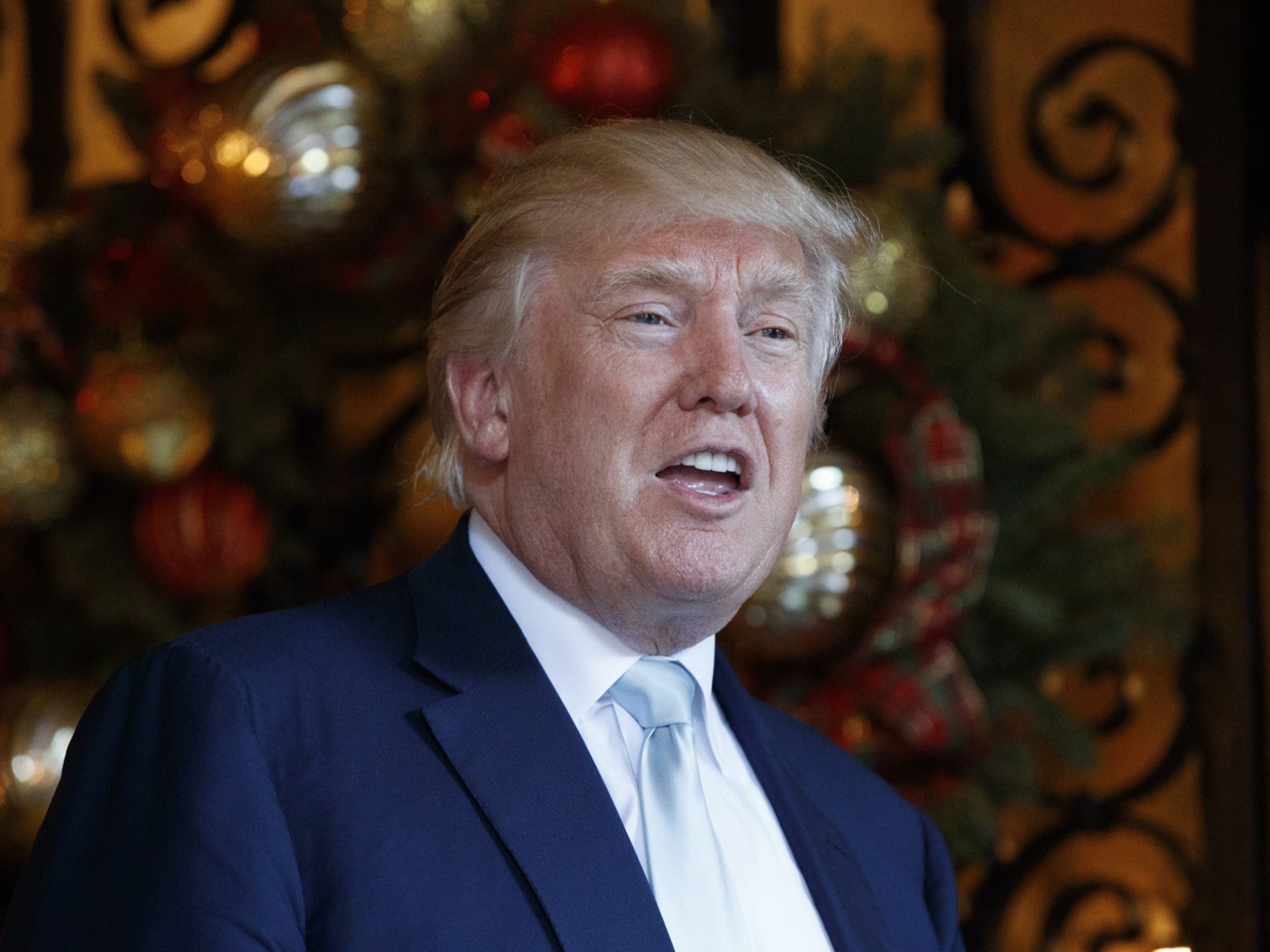Donald Trump still refuses to admit Russia’s alleged cyber hack influenced the election
‘[…] there was absolutely no effect on the outcome of the election […]’

Your support helps us to tell the story
From reproductive rights to climate change to Big Tech, The Independent is on the ground when the story is developing. Whether it's investigating the financials of Elon Musk's pro-Trump PAC or producing our latest documentary, 'The A Word', which shines a light on the American women fighting for reproductive rights, we know how important it is to parse out the facts from the messaging.
At such a critical moment in US history, we need reporters on the ground. Your donation allows us to keep sending journalists to speak to both sides of the story.
The Independent is trusted by Americans across the entire political spectrum. And unlike many other quality news outlets, we choose not to lock Americans out of our reporting and analysis with paywalls. We believe quality journalism should be available to everyone, paid for by those who can afford it.
Your support makes all the difference.After Donald Trump received a briefing from intelligence agencies about Russia’s alleged cyber attack on the presidential election, his response will be viewed by some as predictable: Russia did not help me win.
The president-elect has refused to agree with president Barack Obama and domestic intelligence agencies that Russia hacked the US’s cyber systems in order to boost his candidacy and propel him into the White House, at the expense of his rival Hillary Clinton.
In a statement, released 10 minutes after the briefing ended, Mr Trump said he had a “constructive” meeting with intelligence officials, who were instructed to brief him on the attacks that were reportedly carried out under president Vladimir Putin’s authority.
He added that he had “tremendous respect” for the officials’ work, despite saying their claims were “ridiculous” before the New Year.
But Mr Trump did not admit that Russia helped him to win the election on 8 November, although he did suggest, for the first time, that Russia had tried to hack US systems.
“While Russia, China, other countries, outside groups and people are consistently trying to break through the cyber infrastructure of our governmental institutions, businesses and organisations including the Democratic National Committee, there was absolutely no effect on the outcome of the election, including the fact that there was no tampering whatsoever with voting machines,” he said.
“There were attempts to hack the Republican National Committee, but the RNC had strong hacking defenses and the hackers were unsuccessful.”
The report said, however, that Russian operatives did manage to hack Republican accounts.
The Office for the Director of National Intelligence issued a statement to confirm they had briefed Mr Trump and Mr Obama.
"The Intelligence Community did not make an assessment of the impact that Russian activities had on the outcome of the 2016 election, and DHS [Department of Homeland Security] assesses that the types of systems the Russian actors targeted or compromised were not involved in vote tallying," it read.
Mr Trump's conclusions were not surprising considering that he declared the accusations against Russia were a "political witch hunt", just hours before he was to be briefed.
Vice president-elect Mike Pence told reporters he and Mr Trump had a "constructive and respectful dialogue" with intelligence agencies.
"We are going to take aggressive action in the early days of our new administration to combat cyber attacks and protect the American people from this type of intrusion in the future," he said.
The briefing with Mr Trump comes the same day that a classified report given to president Obama this week is expected to be made public and to shed light on the evidence gathered by US intelligence agencies that led them to believe that Russia was behind the attack. Evidence includes phone calls from Russian officials, congratulating Mr Trump on his win. Mr Trump questioned why NBC gained first access to the report, labelling it "politics".
Green Party presidential candidate Jill Stein most recently led a movement to expose voting fraud and failure in three swing states where Ms Clinton lost out by a narrow margin. She said she found broken voting machines, disenfranchised segments of the population - usually poor people of colour - and Trump lawyers blocking their efforts at every turn.
Mr Trump called her efforts a “scam” designed to “fill the coffers” of the Green Party.
Mr Trump himself claimed that “millions” of people had voted illegally during the election, but he made no mention of that in his statement. His belief that the election was “rigged” prompted him to say that he would contest the result if Ms Clinton won.
The Republican vowed that national security would be his number one priority when he takes office on 20 January.
He has spoken against sanctions on Russia, however, and praised its president for not reacting to Mr Obama's expulsion of Russian diplomats from the US.
Join our commenting forum
Join thought-provoking conversations, follow other Independent readers and see their replies
Comments